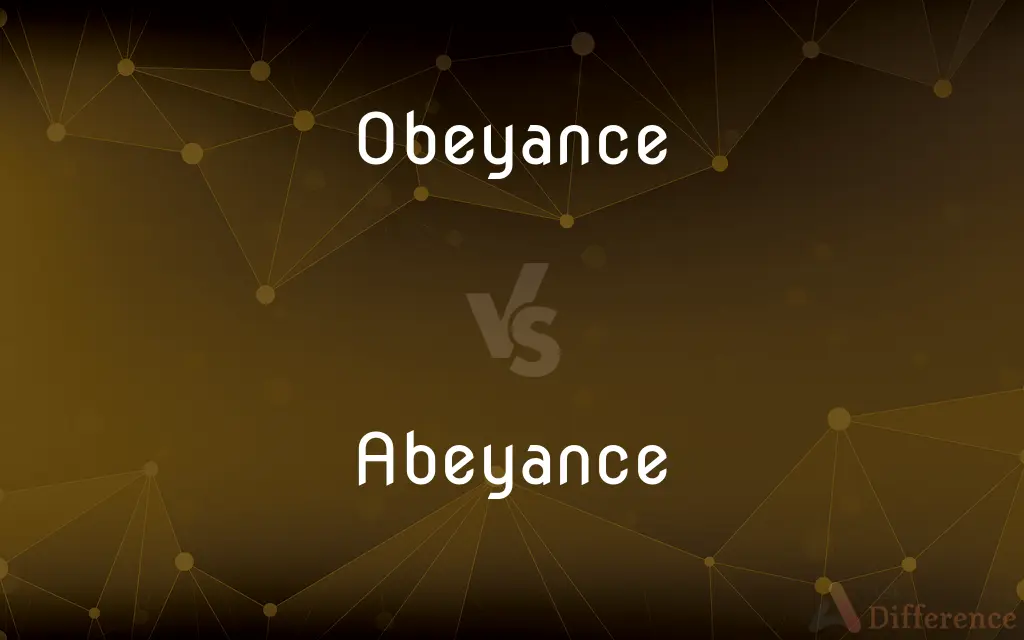Obeyance vs. Abeyance — What's the Difference?

Difference Between Obeyance and Abeyance
ADVERTISEMENT
Compare with Definitions
Obeyance
Obedience
Abeyance
Abeyance (from the Old French abeance meaning "gaping") is a state of expectancy in respect of property, titles or office, when the right to them is not vested in any one person, but awaits the appearance or determination of the true owner. In law, the term abeyance can be applied only to such future estates as have not yet vested or possibly may not vest.
Obeyance
(nonstandard) abeyance
Abeyance
The condition of being temporarily set aside; suspension
Held the plan in abeyance.
Abeyance
(Law) A condition of undetermined ownership, as of an interest in an estate that has not yet vested.
ADVERTISEMENT
Abeyance
(legal) Expectancy; a condition when an ownership of real property is undetermined; lapse in succession of ownership of estate, or title.
The proceeds of the estate shall be held in abeyance in an escrow account until the minor reaches age twenty-one.
Abeyance
Suspension; temporary suppression; dormant condition.
Abeyance
Expectancy of a noble or armigeral title, its right in existence but its exercise suspended.
The broad pennant of a commodore first class has been in abeyance since 1958, together with the rank.
Abeyance
Expectancy; condition of being undetermined.
Abeyance
Suspension; temporary suppression.
Keeping the sympathies of love and admiration in a dormant state, or state of abeyance.
Abeyance
Temporary cessation or suspension
Share Your Discovery

Previous Comparison
Sweet vs. Sweets
Next Comparison
Apply vs. Attend













































